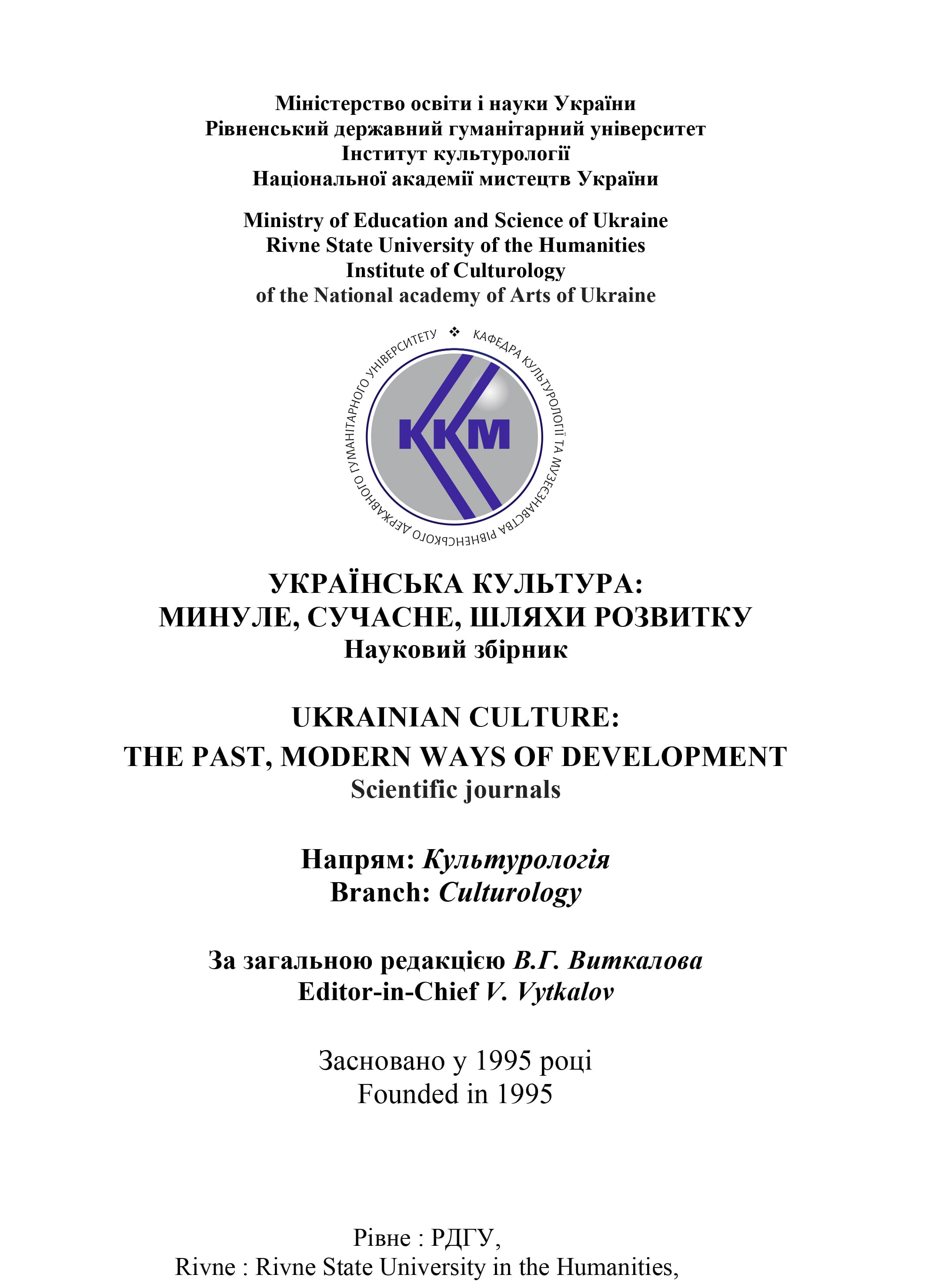NATIONAL CENTERS OF EDUCATION IN UKRAINE END OF THE XVIII – FIRST HALF OF THE XIX CENTURY (to the 200 th anniversary of the founding of Prince Bezborodko High School of Higher Sciences in Nizhyn)
DOI:
https://doi.org/10.35619/ucpmk.vi45.632Keywords:
Nizhyn Higher School of Prince Bezborodyk, cultural activity, cultural studies, scientific school, scientific heritage, cultural and historical traditions, national consciousness, center of Enlightenment, intellectual elite of Ukraine, cultural studies elitology.Abstract
The aim of this article. The priority of the research is the scientific heritage and cultural activity of the scientists-pedagogues of the Nizhyn Higher School as a center of Enlightenment, where the historicalmethodological, historiographical, genealogical and cultural aspects of the scientific activity of teachers, scientists and students who presented the latest trends and scientific fields in Ukraine, Europe and the world. Research methodology. The methodology of the article is based on historical-cultural, chronological, biographical, genealogical, logical-generalizing, cultural and archival-source methods. Novelty. The scientific novelty of the study is the reconstruction of the typology of social, cultural-educational, scientific and public relations in the conditions of Ukraine at the time, as well as the objective coverage of the role of Prince Bezborodek's Nizhyn Higher School in preserving the cultural heritage of the Ukrainian people. It is these aspects that belong to the important and actual problems of historical and cultural science, where the leading category is historical and cultural memory, national identity and self-identity. At the same time, the priority is an interdisciplinary integrative approach to the problem, which illuminates the national intellectual elite of the post -Hetman era as a systemic integrity, united by the material and spiritual basis of its existence; political priority over other states,
which was ensured by the corresponding legal and legal status; common elements of socio-cultural psychology and mentality, which was based on awareness of its historical mission and protection of national cultural heritage.
Result. Coverage of the national elite of Ukraine as a historical and cultural phenomenon, where features of the Ukrainian mentality and identity are highlighted. An analytical approach to the material gives a conclusion about the justification, definition and formation of a separate direction in modern humanitarian science – cultural elitology.




